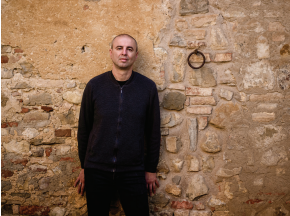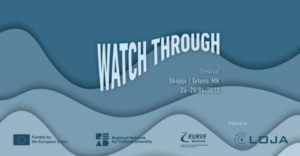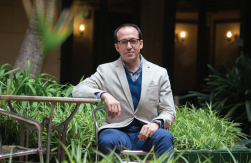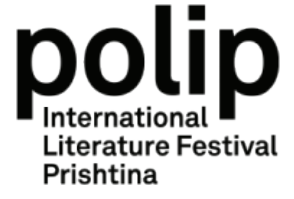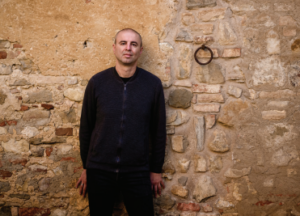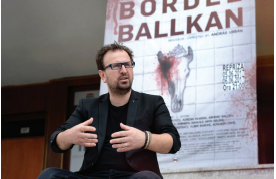Nikola Madzirov (poet, essayist, translator) was born in 1973 in Strumica, in
the family of war refugees from the Balkan Wars. When he was 18, the collapse
of Yugoslavia prompted a shift in his sense of identity – as a writer reinventing
himself in a country which felt new but was still nourished by deeply rooted
historical traditions. His poems are translated into more than thirty languages.
For the book Relocated Stone (2007) was given the East European Hubert
Burda poetry award and the most prestigious Macedonian poetry award
Miladinov Brothers award at Struga Poetry Evenings. Other recognitions
include Studentski Zbor award for best poetry debut and Xu Zhimo Silver
Leaf award for European poetry at King’s College, Cambridge in UK. He was
granted several international fellowships: International Writing Program (IWP)
at University of Iowa; LCB and DAAD in Berlin; Marguerite Yourcenar in
France; Traduki writer-in-resdience fellowships. Nikola Madzirov is one of the
coordinators of the international poetry network Lyrikline, based in Berlin. He
lives in Strumica.
FAST IS THE CENTURY
Fast is the century. If I were wind
I would have peeled the bark off the trees
and the facades off the buildings in the outskirts.
If I were gold, I would have been hidden in cellars,
into crumbly earth and among broken toys,
I would have been forgotten by the fathers,
and their sons would remember me forever.
If I were a dog, I wouldn’t have been afraid of
refugees, if I were a moon
I wouldn’t have been scared of executions.
If I were a wall clock
I would have covered the cracks on the wall.
Fast is the century. We survive the weak earthquakes
watching towards the sky, yet not towards the ground.
We open the windows to let in the air
of the places we have never been.
Wars don’t exist,
since someone wounds our heart every day.
Fast is the century.
Faster than the word.
If I were dead, everyone would have believed me
when I kept silent.
USUAL SUMMER NIGHTFALL
1.
This is what summer nightfall is like:
the adulteress comes onto the balcony
in a silk nightgown that lets through
the trembling of the stars,
a twig drops from the beak of a bird
that falls asleep before it has built its home, a soldier lowers the flag of the state
with a letter from his mother in his pocket
and atomic tests in the womb of the earth
secretly revive the dead. At that moment someone
quietly interprets Byzantine neumes,
someone else falsifies the exoduses
of the Balkan and the civil wars
in the name of universal truths.
In the factory yards
the statues of participants
in annulled revolutions sleep,
on the symmetrical graves
plastic flowers lose their colour
and ordinary ones their shape,
but this peace of the dead
we have parted from
is not ours.
2.
In the village with three lit windows
a fortune-teller foresees only
recoveries, and not illnesses.
The waves throw up bottles enough
to hold the whole sea,
the arrow on the one-way road sign
points to God,
a fisherman rips off a bit of the sky
as he casts his baited line into the river,
some poor child searches for the Little Bear
and the planet he’d like to come from,
in front of the doorstep of the killer with an alibi
a feather attempts to fly.
This is what usual summer nightfall is like.
The town combusts in the redness of the moon
and the fire brigade ladders seem
to lead to heaven, even then when
everyone
is climbing
down
them.
HOME
I lived at the edge of the town
like a streetlamp whose light bulb
no one ever replaces.
Cobwebs held the walls together,
and sweat our clasped hands.
I hid my teddy bear
in holes in crudely built stone walls
saving him from dreams.
Day and night I made the threshold come alive
returning like a bee that
always returns to the previous flower.
It was a time of peace when I left home:
the bitten apple was not bruised,
on the letter a stamp with an old abandoned house.
From birth I’ve migrated to quiet places
and voids have clung beneath me
like snow that doesn’t know if it belongs
to the earth or to the air.
I DON’T KNOW
Distant are all the houses I am dreaming of,
distant is the voice of my mother
calling me for dinner, but I run toward the fields of wheat.
We are distant like a ball that misses the goal
and goes toward the sky, we are alive
like a thermometer that is precise only when
we look at it.
The distant reality every day questions me
like an unknown traveler who wakes me up in the middle of the journey
saying Is this the right bus?,
and I answer Yes, but I mean I don’t know,
I don’t know the cities of your grandparents
who want to leave behind all discovered diseases
and cures made of patience.
I dream of a house on the hill of our longings,
to watch how the waves of the sea draw
the cardiogram of our falls and loves,
how people believe so as not to sink
and step so as not to be forgotten.
Distant are all the huts where we hid from the storm
and from the pain of the does dying in front of the eyes of the hunters
who were more lonely than hungry.
The distant moment every day asks me
Is this the window? Is this the life? and I say
Yes, but I mean I don’t know, I don’t know if
birds will begin to speak, without whispering A war.
AFTER US
One day someone will fold our blankets
and send them to the cleaners
to scrub the last grain of salt from them,
will open our letters and sort them out by date
instead of by how often they’ve been read.
One day someone will rearrange the room’s furniture
like chessmen at the start of a new game,
will open the old shoebox
where we hoard pyjama-buttons,
not-quite-dead batteries and hunger.
One day the ache will return to our backs
from the weight of hotel room keys
and the receptionist’s suspicion
as he hands over the TV remote control.
Others’ pity will set out after us
like the moon after some wandering child.
BEFORE WE WERE BORN
The streets were asphalted
before we were born and all
the constellations were already formed.
The leaves were rotting
on the edge of the pavement,
the silver was tarnishing
on the workers’ skin,
someone’s bones were growing through
the length of the sleep.
Europe was uniting
before we were born and
a woman’s hair was spreading
calmly over the surface
of the sea.
Translated by Graham and Peggy Reid

